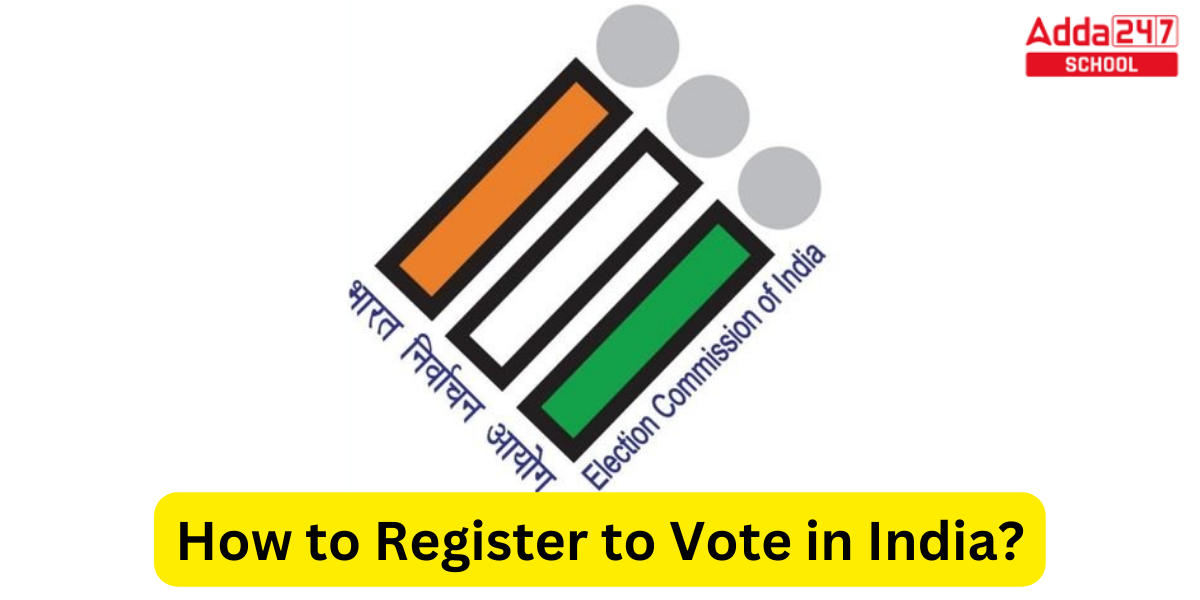Table of Contents
How to Vote India
Voting in the elections is open to all Indian citizens who are at least 18 years old. The applicant must first register, though, in order to proceed. The Election Commission of India (ECI) is the body that Registers the Voters and gives them the platform to Register to Vote in India.
How to vote #India?- Eligibility Criteria
The following qualifications must be met in order to register as a voter:
- The candidate must be an Indian national.
- The applicant must be at least 18 years old as of January 1st of the year they are registering themselves as voters.
- The candidate must be a resident of the district from which he or she is seeking enrollment.
Online Process to Register to Vote in India
Form 6 must be completed by the applicant in order to register to vote online. The application form is available for download on the NVSP website. The Electoral Registration Officer (ERO) in your nation must receive the completed form after it has been filled out. The application will be checked, and the applicant’s name will be added to the voter list. The general electorate, overseas electors (NRI), and service electors are the three main groups of voters.
How to Confirm Voter Registration in India?
You can log on to the election website and check your registration information to make sure your registration is complete. For the same, you must provide your reference ID. The applicant may also update his or her information on the electoral roll via the EC website. the website address for the election commission.
Offline Process to Register to Vote in India
You can adhere to the instructions listed below to register to vote offline:
- To get Form 6, go to the closest Booth Level Officer (BLO).
- Once the form is completed, send it along with your Aadhar card, a birth certificate, and another document serving as confirmation of your birth. You must provide an affidavit explaining why any of these documents aren’t available if that’s the case.
- Moreover, two passport-sized photos of the applicant are needed.
- The applicant must send a photocopy of a family member’s voter ID along with the other relevant paperwork. If none of the family members have identification cards, the applicant may present the neighbor’s card.
- The verification department will check the paperwork after it has been presented to the Booth Level Officer (BLO), after which it will provide the applicant’s voter ID.
Forms Required for Registering to Vote in India
The following forms are necessary in various situations:
- Any registered voter must complete Form 6. Fill out Form 6 for candidates who are registering as first-time voters as well as those who want to switch their constituency.
- NRIs (non-resident Indians) must complete Form 6A.
- The applicant can complete Form 7 to make modifications to any information pertaining to his or her listing on the electoral roll.
- To update information like the applicant’s name, photo, age, EPIC number, address, date of birth, name of a relative, type of relation, or gender, the applicant should complete Form 8.
Process to Check Voter Registration Status
Follow the instructions below to verify your voter registration:
- To check your voter registration status, go to https://electoralsearch.in/.
- If your name appears on the electoral list, you are already registered to vote; if not, you should do so.
- Visit the website to register your name on the voter list.
The process to Register to Vote in India: About Election Commission of India
The independent constitutional body in charge of overseeing India’s election procedures is the Election Commission of India. The organisation oversees the elections for India’s President and Vice President as well as the Lok Sabha and Rajya Sabha legislatures. Article 324 of the Constitution grants the Electoral Commission authority to carry out its duties, and as a result, the Representation of the People Act was passed.
The Constitution of India establishes the Election Commission of India (ECI). It was created by the Indian Constitution to oversee and overseen elections in the nation. According to Article 324 of the Constitution, the election commission shall have the authority to supervise, direct, and oversee elections for the state legislatures, the president of India, and the vice-president of India. The Election Commission is therefore a body that serves both the Central government and the state governments, making it an all-India entity.
Functions of Election Commission of India
- The organisation oversees elections for the Lok Sabha, Rajya Sabha, state legislative assemblies, state legislative councils, and the presidential and vice presidential positions in the nation.
- Article 324 of the Constitution grants the Electoral Commission authority to carry out its duties, and as a result, the Representation of the People Act was passed.
- According to the Constitution, the commission has the authority to take necessary action when the provisions of the laws that have been passed are insufficient to address a specific circumstance that may arise during the conduct of an election.
- The country’s higher courts, the Union Public Service Commission, and the Comptroller and Auditor General of India are among the few institutions that operate with both autonomy and freedom.
- The Election Commission is one of these few institutions because it is a constitutional body. It is an ongoing constitutional entity.



 CUET UG 2025: A Winning Strategy for the...
CUET UG 2025: A Winning Strategy for the...
 UP, MP, CBSE Board Result 2025 Live Upda...
UP, MP, CBSE Board Result 2025 Live Upda...
 [Live Update] CUET PG Result 2025 @exams...
[Live Update] CUET PG Result 2025 @exams...










